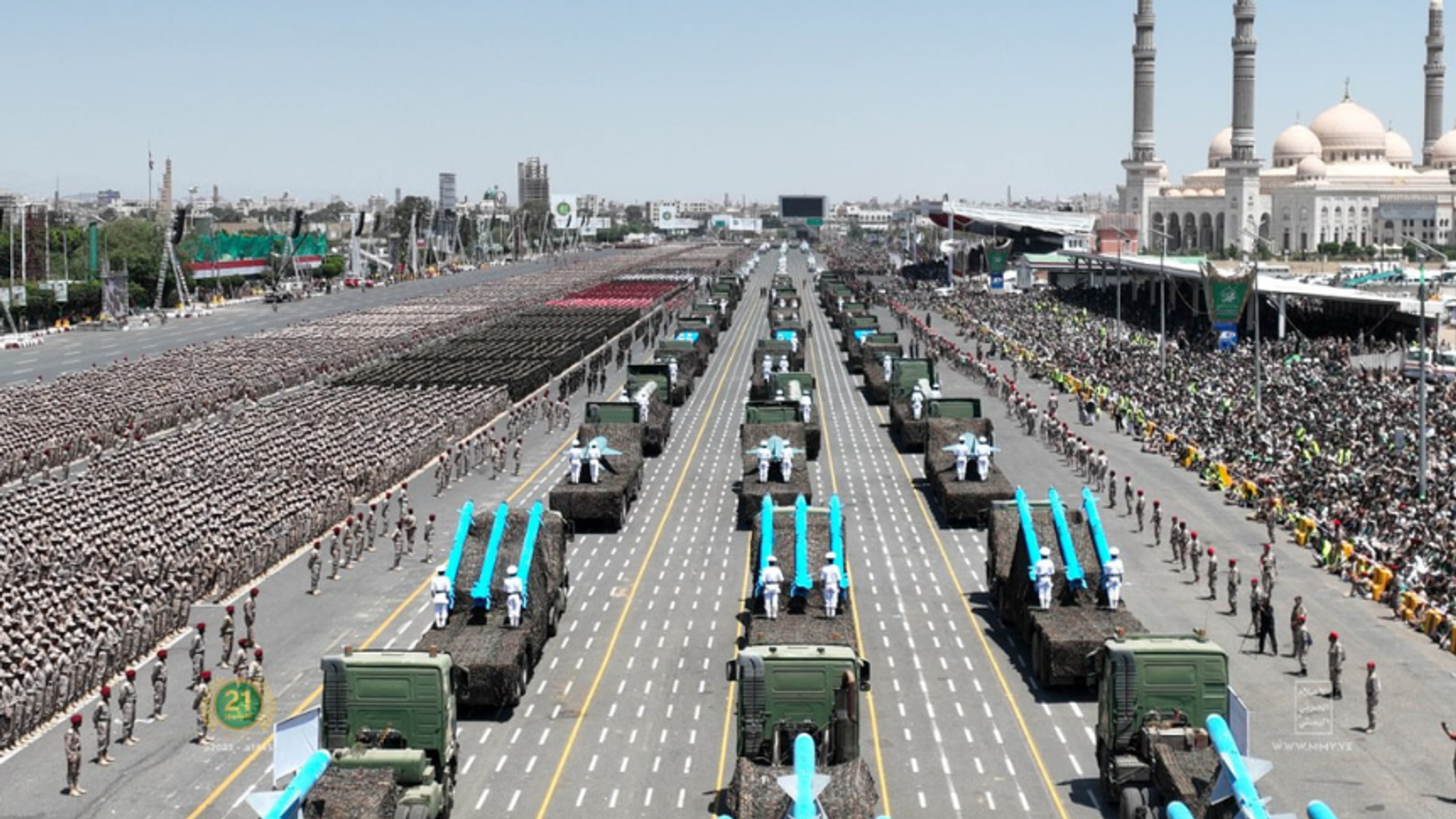Yemen is Doing What Gulf States Should Have
23:48 GMT 19.07.2024 (Updated: 23:56 GMT 19.07.2024)

© Photo : Courtesy of Ansar Allah Media office
Subscribe
On Thursday, a Yemeni drone struck a building in the Israeli capital of Tel Aviv, killing at least one, according to Israeli officials. The Ansar Allah (Houthi) forces said its drone bypassed Israeli air defenses and declared Tel Aviv as an unsafe zone and a primary target for their weapons.
Israel blamed the attack on human error and claimed its defenses were not breached.
Video on social media shows a gliding-type drone flying over the shoreline near Tel Aviv before arriving in the city and causing a large explosion. The Houthis said the new drone is undetectable by Israeli air defenses and named it the Jafa, after the Palestinian name for Tel Aviv before it was occupied by Israel. Its projected path indicates it bypassed far more than just Israeli defenses, traveling nearly 1000 miles (~1600 km) according to some estimates.
Yemeni Armed Forces "Yafa" Drone ending its days in "Yaffa" (Full Video) pic.twitter.com/ky46oFzvH9
— MenchOsint (@MenchOsint) July 19, 2024
“The Yemeni drone did not just bypass Israeli air defenses, it also bypassed the US Navy, the UK Royal Navy. It bypassed Saudi air defenses… it bypassed Jordan, it bypassed everything and it managed to hit in the capital of the Israeli occupation state,” journalist and editor of The Cradle Esteban Carrillo told Sputnik. “[Israel is] calling it human error. "We saw something enter through the south, we didn’t think it was a threat.’ Well, they were wrong.”
The Houthis have made clear that their actions against Israel are done in solidarity with the Palestinians in Gaza who have been suffering under an Israeli military campaign that has been described as a genocide by multiple world leaders and human rights organizations. But Yemen is one of the poorest countries in the world and there are several rich Arab states in the area, with the resources to do more.
Carrillo says he is not surprised that they have declined to do more.
“This has been the status quo for decades at this point, right? When have the Saudis ever come to the aid of the Palestinians? When has Iraq? When have the Jordanians, right? Like, since the [Six-Day War], [which] seems like so long ago, they have essentially normalized [relations with Israel], same with Egypt.”
Carrillo noted that while many countries in the region have not officially normalized relations with Israel, it has become a “de facto normalization” due to their desire to keep warm relations with the West.
“They still believe in US supremacy and US primacy, and Israel is as we know [and] have absolutely no doubt anymore over the past nine months, it’s probably the most essential foreign policy project from the US,” which transcends political lines and administrations, Carrillo argued. “Israel has always been number one. Right now you have presidential candidates essentially in competition to show who is the most Zionist of them all.”
While certain Gulf states have been more willing to take actions that anger the US, such as when OPEC+ cut oil production against the wishes of US President Joe Biden, those actions usually have a financial benefit for the countries, while aiding the Palestinians only offers moral standing.
“There’s nothing to be gained from [helping the Palestinians] except the moral stance, right? The ethical stance to show that you care for human beings who are being shelled day in and day out for nine months, entire families exploding into bits,” Carrillo explained, adding that “This is not something that interests the Gulf leaders.”
Still, the Yemenis and Hezbollah in Lebanon are making a significant impact, not only with their shelling of Israel, where Hezbollah has forced the evacuation of the north but also in the Red Sea, where the Houthis have all but halted shipping to Israel and the combined forces of the US and the UK have been unable to stop them. The strike on Tel Aviv proves that the Houthis have even greater capability than previously thought, and represents a new phase in the war.
“[The Israeli papers] the Walla Daily said the drone incident proves that deference has collapsed. Haaretz… is saying this drone incident–that's what they keep calling it–reflects a new face in the war. The Maariv newspaper is saying this is the starting shot from Yemen,” recounted Carrillo.
The Walla Daily also asked if this was the start of a war with Yemen, but openly wondered if the Israeli Defense Force was up to the task. “The question arises, in this sense, if the IDF has the appropriate means for a significant attack [against Yemen],” the paper wrote (translated).


